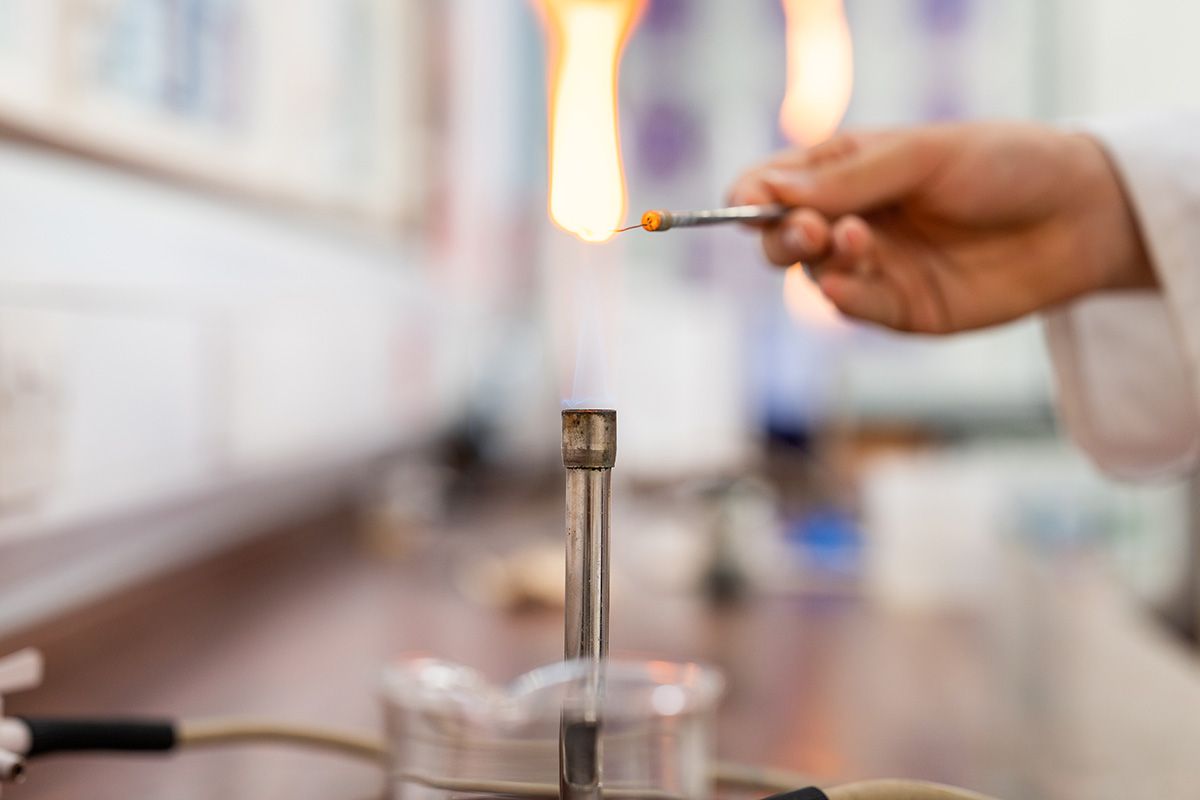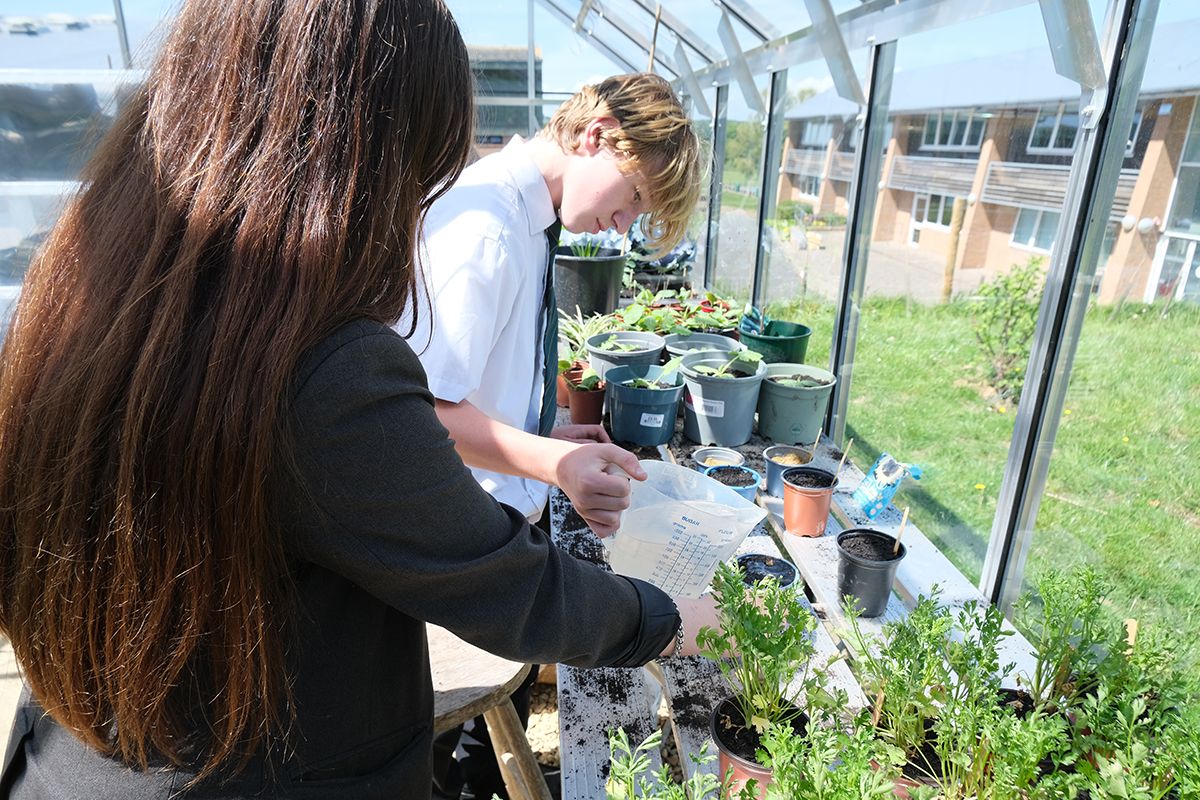Science

Science
Curriculum Overview
Intent: Our Purpose and Ambition
In the science department our ethos is based on the IWEF focus on ASPIRE and ACHIEVE. We seek to promote creative thinking amongst our learners enabling them to take the learning from within the classroom into their everyday lives promoting development of transferable skills such as problem solving, critical thinking and effective decision making. The ability to think creatively directly links into our belief that all pupils have the ability to achieve and/or exceed their potential.
AMBITION – We want our pupils to be ambitious and to explore different parts of the scientific world, linking them to future study and to potential careers paths
SUCCESS – Understanding the role of science and scientific discovery in our world and the wider society enabling our pupils to challenge misconceptions and inaccuracies.
PROGRESS – Knowledge and understanding of key scientific skills and concepts allowing pupils to grow into scientifically literate and independent thinkers.
INSPIRATION – Inspired by the world around them pupils are able to make sense of the global and local environment and environmental and technological advances that drive human progress.
RESPECT – In science we seek to to create an environment of respect. Respect for all people in our schools, all cultures and societies and a care for our natural world. We seek to maintain this ethos when assessing scientific progress and discovery.
EQUALITY – Every pupil is given the same opportunities regardless of background. Through our curriculum, pupils appreciate their equality but recognise the inequality that exists locally and globally.
What do we expect students to get from Science?
- Students will be able to apply their broad knowledge and understanding of the key scientific ideas and techniques to familiar and unfamiliar contexts, showing confidence in these skills.
- They will be able to interpret complex data sets, make reasoned judgements and draw evidence based conclusions.
- They will be able to develop, improve and evaluate familiar and unfamiliar experimental procedures suggesting improvements that will result in higher quality data.
- Students will have the knowledge, skills, understanding and resilience required to continue onto their chosen path regardless of subject choices equipped with the transferable skills that will aid in their success moving forwards.
Implementation: Design Pedagogy and Assessment
How does learning develop over the five years?
Year 7:
We have linked our Key Stage curriculum around the framework of the AQA Mastery Model. The approach, specifically adapted for Medina and Carisbrooke Colleges enables us to cover the vast majority of the content in Years 7 and 8. The aim of our approach is to build on the skills and knowledge that our students gained during primary school and it is written to prepare students fully for the demands of the new GCSE examinations that they will sit. Students study the separate sciences over each two week cycle (2 lessons of each) with each subject focusing on a main theme in the subject. Teaching is centred upon utilising a wide range of activities including a large proportion of practical investigative work. The structure of these practical experiments mirrors the format of the GCSE core practicals.
Biology: Movement, Cells, Interdependence, Plant Reproduction, Variation, Human Reproduction.
Chemistry: Particles, Separating Solutions, Metals and Non-Metals, Acids and Alkalis, Earth and Universe. Physics: Speed, Gravity, Sound, Electricity, Energy Costs and Transfers.
Year 8:
The year 8 curriculum revisits and builds upon the year 7 and KS2 areas of learning. The aim of our approach is to build on the skills and knowledge that our students gained during primary school and it is written to prepare students fully for the demands of the new GCSE examinations that they will sit. Students study separate sciences over each half term with each subject centred around a main theme. Teaching is centred upon utilising a wide range of activities including a large proportion of practical investigative work. The structure of these practical experiments mirrors the format of the GCSE core practicals.
Forces, Energy, Particles, Atoms, Reactions, Waves and Cells.
These fundamental principles are applied to more complex themes such as Adaptations, Reactions of Metals and Electromagnetism. Students will develop an increased awareness of the courses available to them at GCSE and A-Level and an increased awareness of the opportunities Science can provide for them beyond school (careers etc).
Year 9:
In Year 9 we apply the principles of working scientifically at GCSE. This includes developing confidence in using the scientific method (planning, carrying out, analysing and evaluating an investigation) and developing their schema based on the Big Ideas of Forces, Energy, Particles, Atoms, Reactions, Waves and Cells to GCSE Combined Science level.
We apply these fundamental principles to more complex themes such as Chemical bonding and Infection & Response. Students will develop an increased awareness of the opportunities Science can provide for them beyond school (careers etc).
Year 10/11:
At this point we look at applying the principles of working scientifically at GCSE. This includes developing confidence in using the scientific method (planning, carrying out, analysing and evaluating an investigation). Having a well developed schema based on the Big Ideas of Forces, Energy, Particles, Atoms, Reactions, Waves and Cells to GCSE Combined and separate Sciences level. We then apply these fundamental principles to more complex themes such as Quantitative Chemistry, Radioactivity and Homeostasis.
Students are expected to develop a full understanding of the courses available to them at GCSE and A-Level and developed an increased awareness of the opportunities Science can provide for them beyond school (careers etc).
The ability to call on appropriate strategies to support their learning such as the use of retrieval practice and self-quizzing on targeted areas of development in their schema. We also expect students to develop their practical and academic skills for future study or employment.
How is the timetabled curriculum supplemented or enriched by other approaches to learning?
- Stem opportunities
- Field research
- Participation in wider community projects
In what ways does our curriculum help to develop students?
- New key terms are introduced carefully with supporting examples in line with Rosenshines Principles of Instruction.
- SLOP (Shed Loads Of Practice) activities are being developed to support the deliberate practice of recalling and applying knowledge.
- Self or peer quizzing using knowledge organisers.
Impact: Attainment, Progress, Knowledge, Skills and Destinations
What forms do assessments take? What is the purpose of assessment?
We use retrieval practice every lesson as a recap/starting point to enable students to see links to prior learning (across the sciences where appropriate). The Science department frequently contextualise lessons in the context of careers and use exit cards to check progress and understanding every 3 lessons, this is used formatively to enable intervention to be taken where necessary. End of Topic Assessments are also used to get a high success rate and allow for intervention to be taken where necessary.
How do we know if we have a successful curriculum?
- We will see engaged students who are achieving expected progress.
- Students will be able to apply their broad knowledge and understanding of the key scientific ideas and techniques to familiar and unfamiliar contexts, showing confidence in these skills.
- They will also be able to interpret complex data sets, make reasoned judgements and draw evidence based conclusions.
- Our students will be able to develop, improve and evaluate familiar and unfamiliar experimental procedures suggesting improvements that will result in higher quality data.
- Students will have the knowledge, skills, understanding and resilience required to continue onto their chosen path regardless of subject choices equipped with the transferable skills that will aid in their success moving forwards.
How do we support ‘High Attaining’ pupils?
- Triple Science route is taught with subject specialist teacher
- Targeted revision sessions
- Opportunities to experience higher level learning; placements e.g University Open Days, Roadshows, Further Education Carousels
Science Curriculum Map

